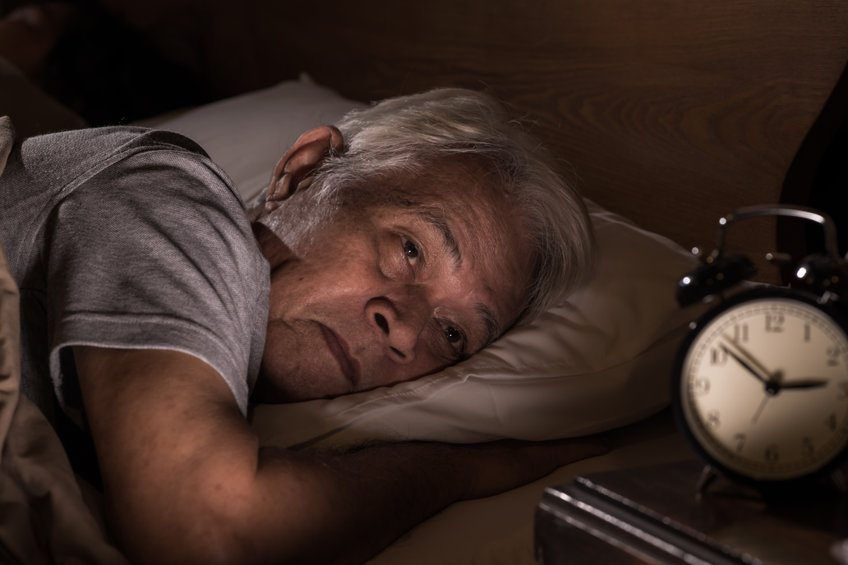Insomnia is a sleep disorder characterized by having difficulty either falling asleep or staying asleep. It’s estimated that 10 to 30% of adults live with insomnia; those age 60 and above are more prone to insomnia.
Seniors are at a higher risk. Our internal circadian clock and natural sleep-wake cycle change as we age, which affects how well and how long we sleep. Some medications can also interfere with sleep habits. Some studies have suggested that the average person loses 27 minutes of sleep per night for each decade of life.
A normal sleep cycle has four stages including two stages of light non-rapid eye movement (NREM) sleep, one stage of heavy or slow-wave NREM sleep, and a final stage of rapid eye movement (REM) sleep. Studies have shown that the elderly experience a lower percentage of slow-wave NREM and REM sleep than do younger adults. The result is that seniors are more likely to wake during the night and be less alert and refreshed upon waking.
Insomnia also can impair a person’s ability to function during the daytime, causing excessive daytime sleepiness, fatigue, irritability, trouble concentrating or paying attention. Those with insomnia are at a higher risk of an accident or fall as well.
Persistent insomnia (at least three times a week) should be discussed with a physician. A sleep study may be in order to determine if sleep apnea is a factor. If insomnia lasts for three months, a doctor may diagnose chronic insomnia. Regardless of the length of weeks or months, insomnia is a difficult issue to experience but one for which there may be treatment options.
Some non-medication options that may help include making sure the bedroom is quiet and mostly dark; a nightlight may be vital for a senior who needs to use the bathroom at night, but position the nightlight so that it’s not in his or her field of vision while laying down. A cooler room temperature may be helpful. See if reducing the number of daytime naps helps improve nighttime sleep. Having bright lights on in the evening before bed may also help the senior stay awake longer and fall asleep better when they do go to bed.
Insomnia is more than a nuisance, it can impact health and well-being. For the elderly who still live in their own home, having good sleep habits also helps have better quality of life. As aging takes place, if your family member or loved one needs help at home, FootPrints Home Care is available to help as needed. Our trained caregivers offer help with showering, dressing, toileting and the other activities of daily life, but also with meal preparation, companionship, and household tasks. Having a bed with freshly laundered sheets may also help sleep come a bit easier! If we can help, please contact FootPrints Home Care, serving the Albuquerque and Santa Fe regions since 2005.



